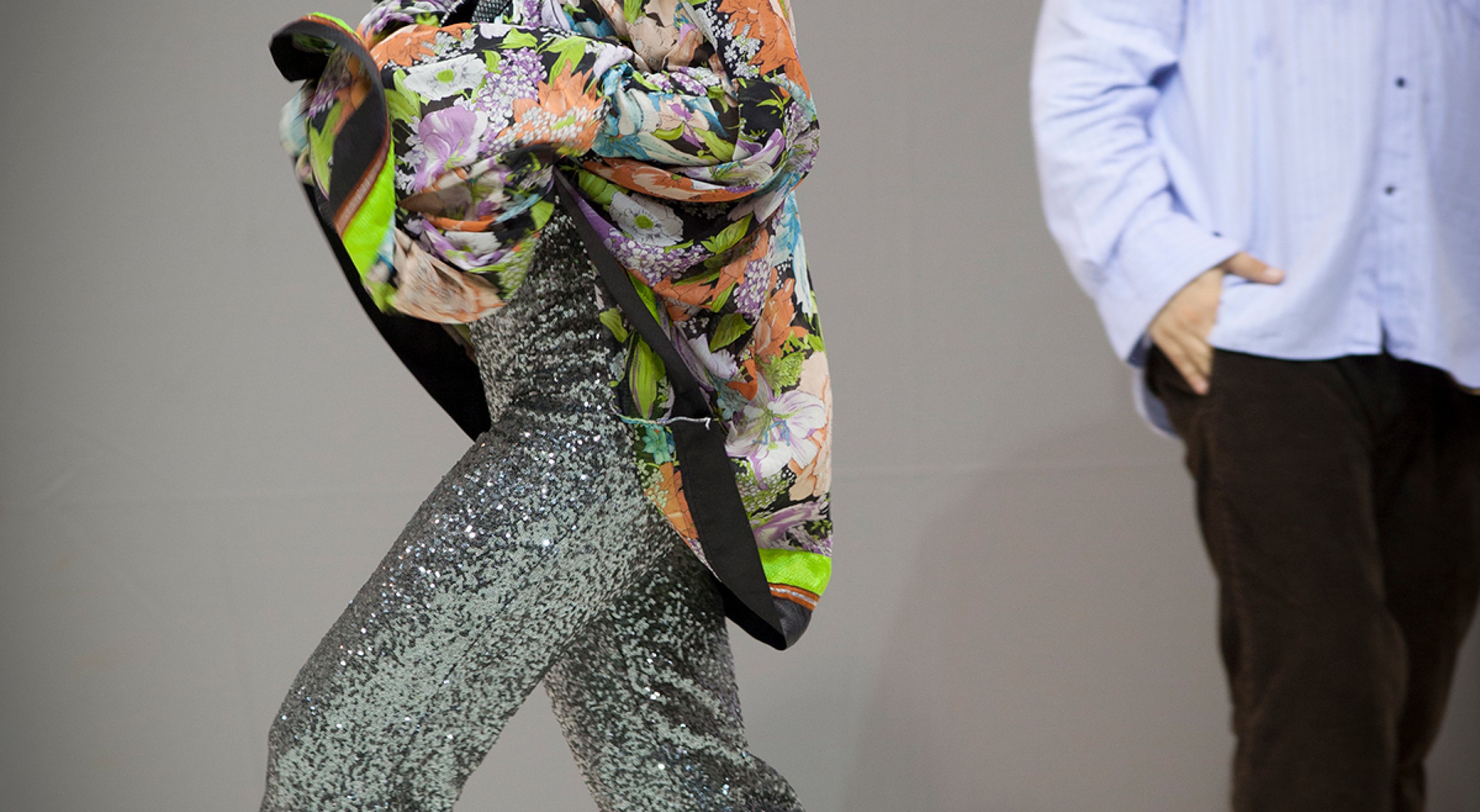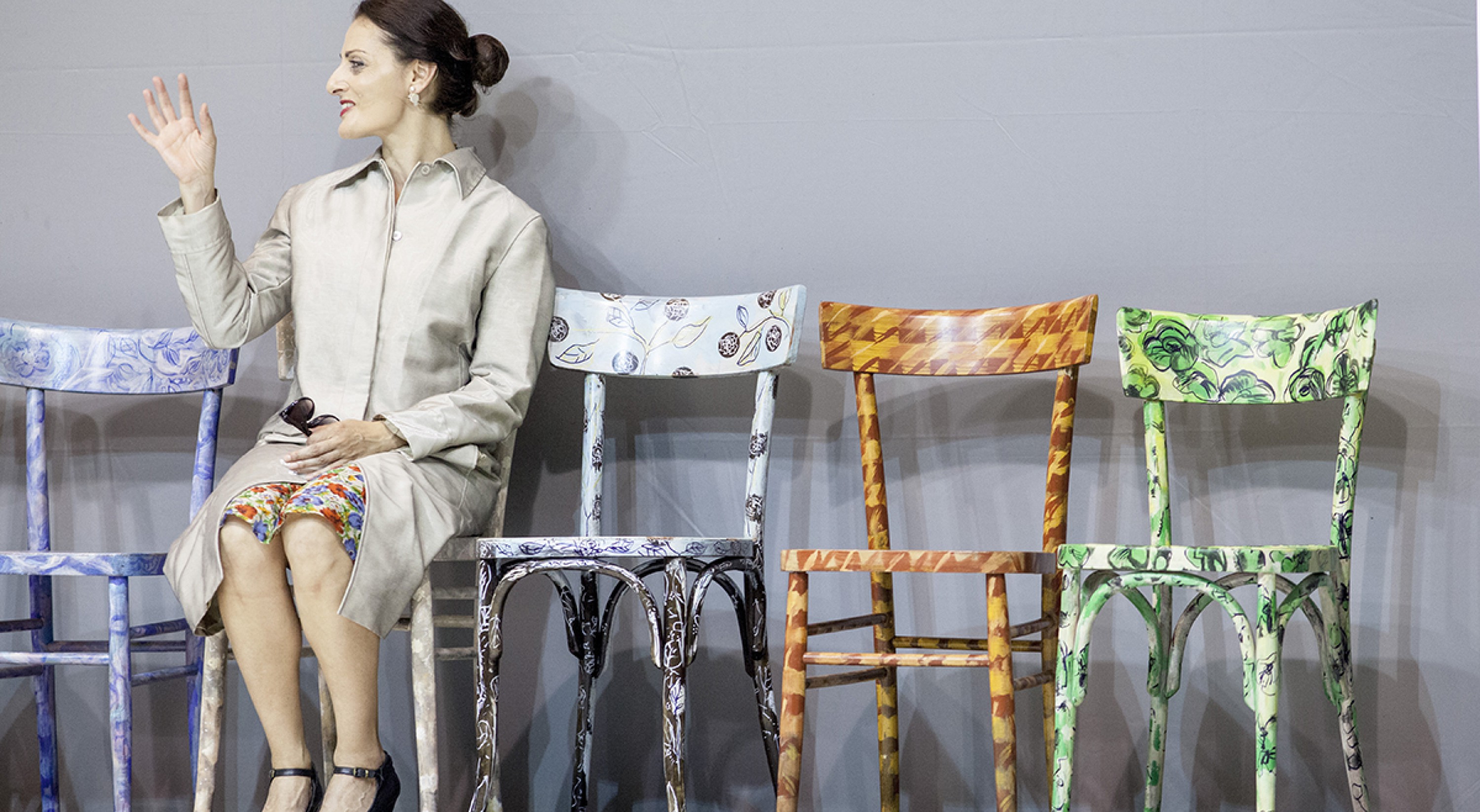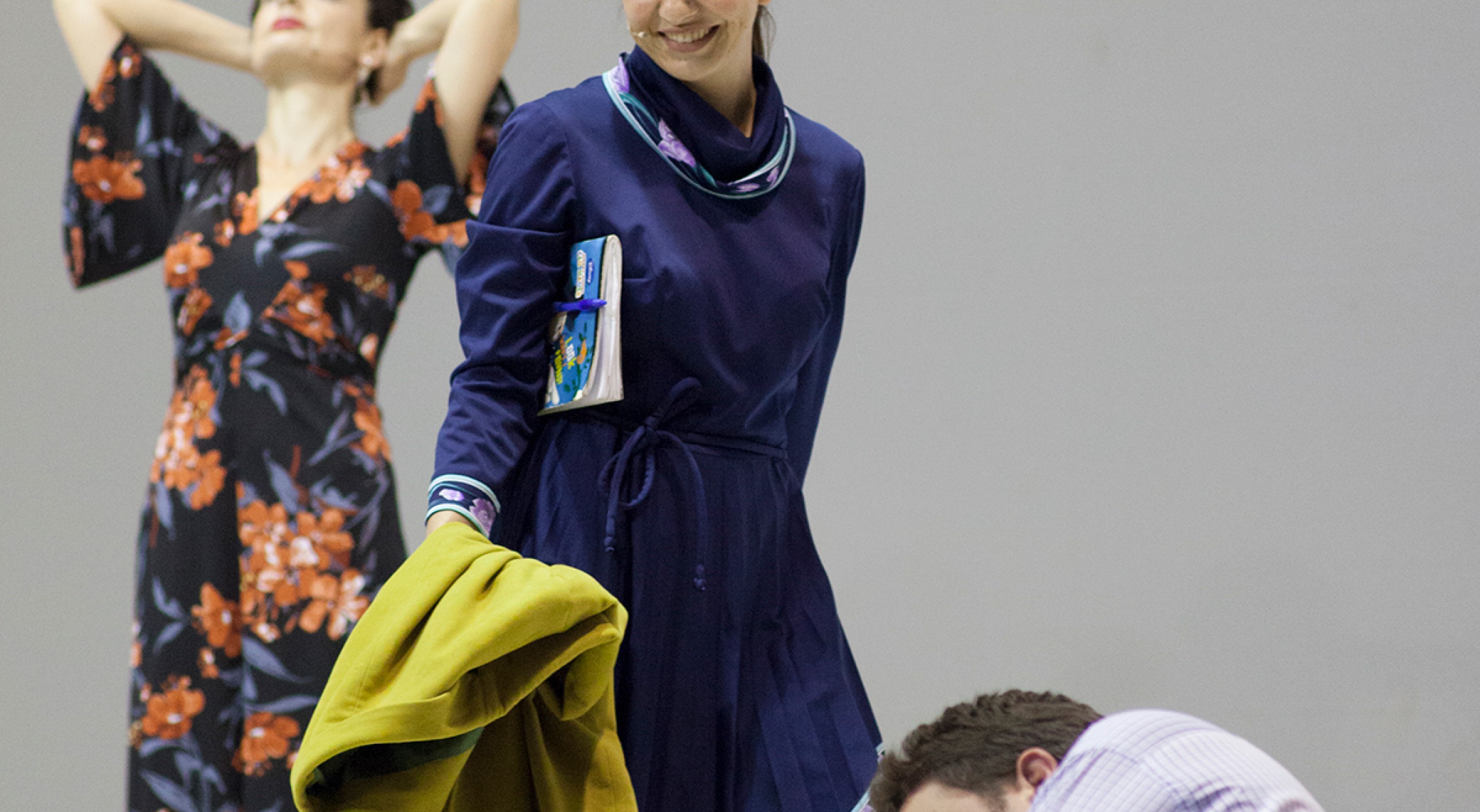Lucia Calamaro
La Vita ferma. Sguardi sul dolore del ricordo
novembernov 7 – 15
Written and directed by Lucia Calamaro
With Riccardo Goretti, Alice Redini, and Simona Senzacqua
Assistant director, Camilla Brison
Stage and costume design, Lucia Calamaro
Paintings, Marina Haas
Technical direction, Loïc Hamelin
Accompaniment and international distribution, Francesca Corona
A production by Sardegna Teatro, Teatro Stabile dell’Umbria/Terni Festival // Co-produced and in association with Odéon-Théâtre de l’Europe (Paris) ; Festival d’Automne à Paris // In collaboration with Teatro di Roma // With support from Angelo Mai and PAV // In partnership with France Culture // First performed on the 18th September 2016 at the Terni Festival
A thought-drama in three acts. A slice of life of a father, a mother and their daughter in the face of the loss of a loved one. Designed as a mind space, the stage becomes the place of a thought-provoking enquiry into the irremediable split between the living and the dead, a gulf which only sorrow can fill.
Lucia Calamaro’s piece hinges upon the sensitive question of the death of loved ones, their spectral presence within us, the painstaking experience of piecing together the memory which we deem to be worthy of them, and the feeling of guilt which is inextricably linked to loss. In between the two, life and death, there is one sole thread: that of painful nostalgia, a thread which the living can decide to cut or maintain, as if those who are left behind have the power to grant or remove someone’s whole existence. The three acts are joined together so as to spread before us the whole range of possibles to be found between these two walls of an implacable alternative: either to keep the memory alive in order to save those no longer with us, or try to forget in order to save ourselves. La Vita ferma is a bravura piece of work on two levels: in terms of its dramaturgy, which brings the deceased to life on stage just as much the mourners, but also in terms of its tone, which allows the subject of death to be talked about with a mixture of vitality and caustic humour. A deeper, hidden layer emerges from within the trough of this family mural: taking as a starting point the question of the fidelity of our often truncated, fragmentary and reinvented memories of those around us, the artist points to our own permanent search for identity.
In the same place



